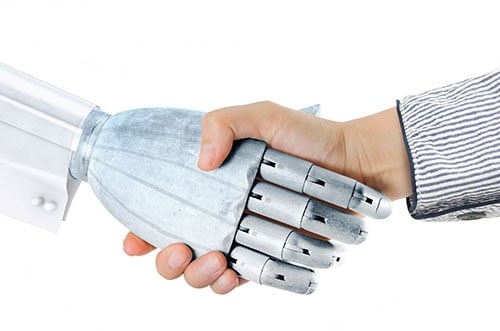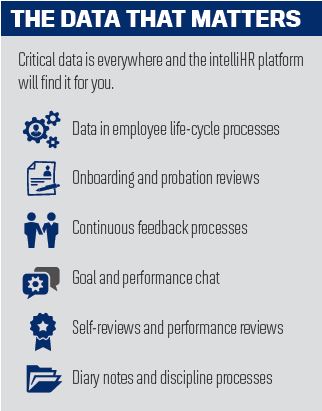
Most HR professionals are aware of AI, but Rob Bromage, CEO and founder of intelliHR, outlines the emerging field of intelligence augmentation and what it means for HR

Most HR professionals are aware of AI, but Rob Bromage, CEO and founder of intelliHR, outlines the emerging field of intelligence augmentation and what it means for HR
There has been so much hype around artificial intelligence over the last few years that I think there's now a bit of fear surrounding it. A lot of people I speak to are still unsure why we need it and what exact role it can play, and probably wonder, “Will it take over our jobs?” I recently spoke at the HR Directors Forum at the National HR Summit about big data and how you can use AI to leverage all of your human capital data. There is an enormous opportunity for HR teams to leverage the latest technology around AI, but more specifically there’s also an opportunity to focus on intelligence augmentation, or IA, which is a term not as many people are familiar with.
What’s the difference?
AI is an autonomous system that can be taught to imitate and replace human cognitive functions. To put it simply, the machine completely replaces human intervention and interaction. IA, on the other hand, plays more of an assistive role by leveraging AI to enhance human intelligence, rather than replace it.
What can IA do for HR?
When it comes to IA, there’s certainly nothing to worry about, and in fact there is a massive opportunity for HR to embrace the access to the data insights that can be generated. There’s so much data that flows around an organisation; there’s data in exit feedback, goal feedback, performance feedback; it’s everywhere. There’s literally so much content flowing around an organisation that even the best HR team could not possibly process and make sense of it all.
With IA, the machine is not making a decision and doing something about it without consulting you; the machine is just saying “Hey, take a look at this; I think it’s important and so you should pay attention to this”. That’s the whole concept of the augmentation: it’s enhancing not replacing.

So you see, the machine does not do the job for you – it enhances your ability to do yours. There’s logic and an algorithm sitting there, and this is where an all-in-one analytics and people management platform can allow people to get a grip on potential risks before they get out of hand.
Do we need AI then?
It might sound a little daunting, but the truth is we need AI in HR because it has the capability to do some really awesome things for us and the business.
One form of AI is actually natural language processing (NLP). NLP is a computer application designed to understand the human language as it is spoken or written. It can be used to do sentiment analysis by predicting sentiment or underlying emotions coming through in your qualitative data, and that’s pretty amazing. A member of the HR team simply could not sit there and process the mass amounts of data flowing in and around your business, let alone compile a report on it for you at the click of a button. At the end of the day, AI allows HR teams to see key issues taking place and act on them much quicker than you would have been able to without it. One of the main reasons we created the intelliHR platform was because we wanted to give HR teams all the tools to manage those issues more proactively themselves.
To put it plainly…
I think the ‘now status’ for many HR managers without the right technology is that they are forced to go digging through mountains of data for crucial information, which takes a lot of time. However, the ‘now status’ with intelliHR is that you can find the data you need at a click of a button and save yourself not only time but the stress involved in getting to an issue after the horse has already bolted.
There is a massive opportunity to leverage AI in an HR organisation, particularly if we look at it from the perspective of IA. I believe the greatest value to a business is the ability to be across all data, to the point where you can understand exactly what data is important at any point in time. The CEO of Facebook, Mark Zuckerberg, said that if we wanted to have the biggest impact the best way to do this would be to make sure we always focus on solving the most important problems. I see AI with IA thinking as arming us with the data that shows us where those problems lie.
 Rob Bromage is an HR technology specialist with more than 20 years’ experience. He is the founder and managing director of intelliHR, a cloud-based people management platform that allows organisations to maintain a real-time handle on performance, creating a culture that contributes to strategic decision-making with data-driven insights.
Rob Bromage is an HR technology specialist with more than 20 years’ experience. He is the founder and managing director of intelliHR, a cloud-based people management platform that allows organisations to maintain a real-time handle on performance, creating a culture that contributes to strategic decision-making with data-driven insights.